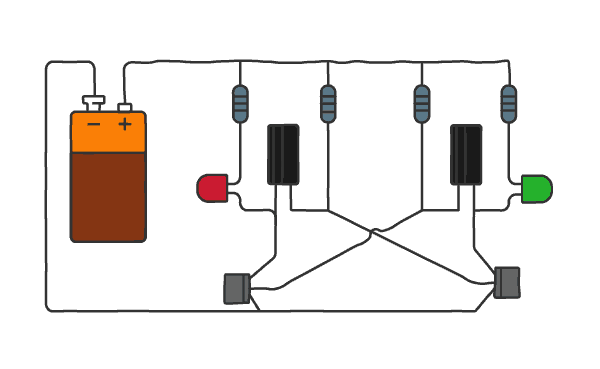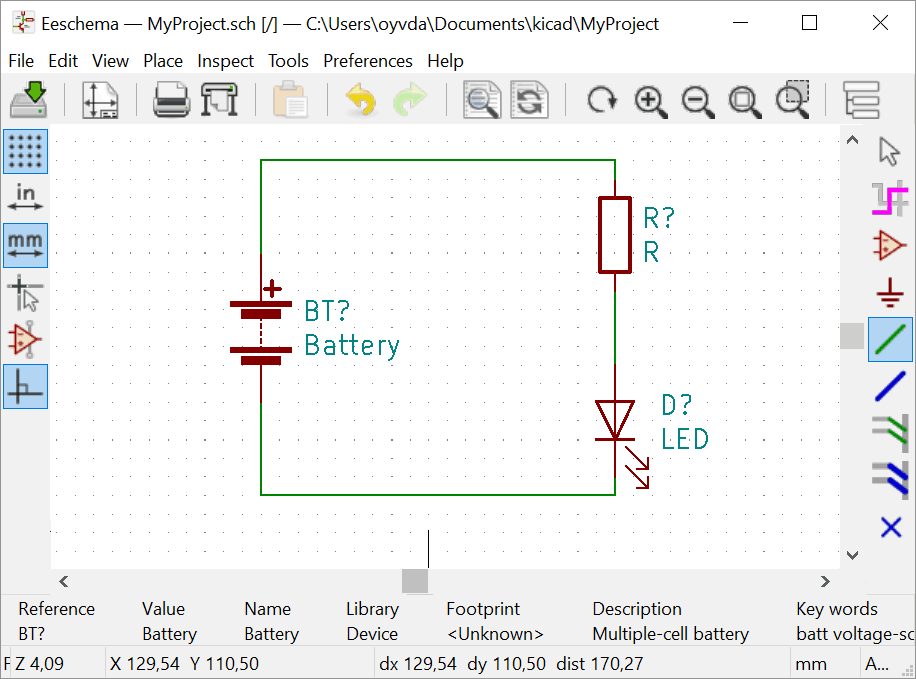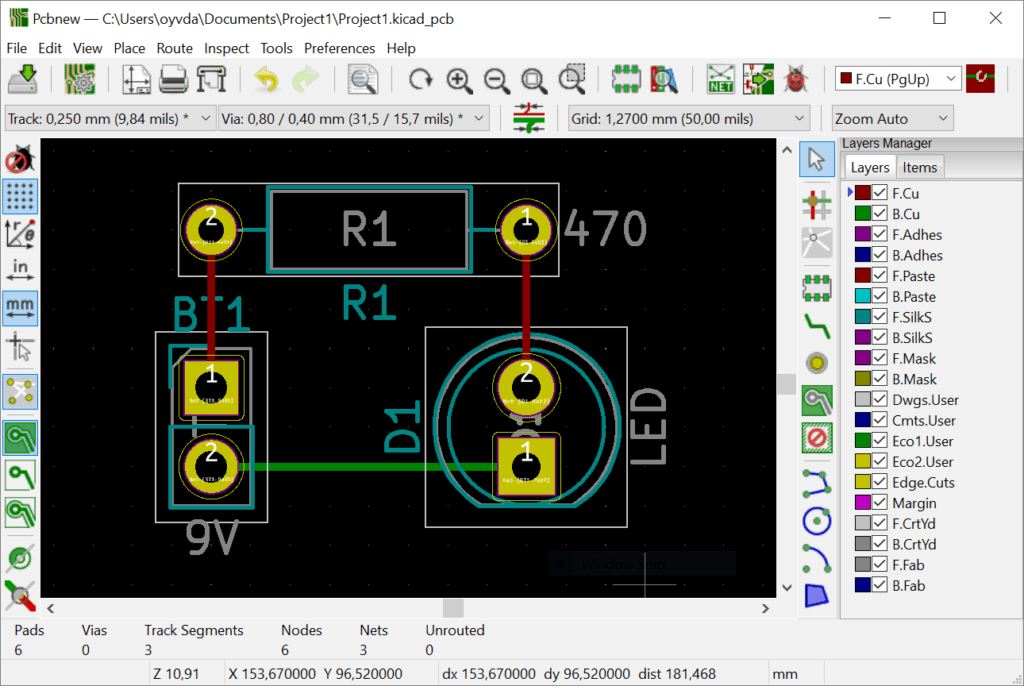
To create a Printed Circuit Board (PCB), you need to draw holes, pads, and wires for your circuit. This skill is called PCB design and is highly useful.
When you’re done, send the design to a manufacturer or you etch it yourself.
Sounds hard? Don’t worry, there are many free tools out there that will help you do this.
Below I’ll give you an overview of what you need to do.
Step 1: Create Or Find A Circuit Diagram
Before you start drawing wires and stuff, you need to know what circuit you want to build. So you need a circuit diagram.
You can either find one that someone else has made, or you can design your own from scratch.
I recommend starting with something simple. Like a blinking LED.

Once you have your circuit diagram, move on to step 2.
Step 2: Draw Your Schematics
First, you need to install a PCB design software.
I highly recommend KiCad for making your PCB. It’s free and it’s really good. I’ve also created a step-by-step KiCad tutorial for beginners.
Create a new project. Then draw the schematics from the circuit diagram you found in Step 1.

When you think you’re finished, run the Electrical Rules Checker (ERC) to see if you’ve made any typical errors.
Step 3: Design Your Board Layout
Now it’s time to draw the board. You need to transfer your schematic diagram into a drawing of your printed circuit board.
This isn’t as hard as it might sound. Because the software will compare what you are drawing to the schematics file. And it will help you create the same connections.
Take your time, and make sure it looks good ;) Follow the design guidelines for drawing circuit boards.

When you’re done, run the Design Rules Checker (DRC) to see if you’ve made any errors.
Questions?
What are your biggest concerns, doubts or questions around PCB design? Let me know in the comment field below!
Copyright Build Electronic Circuits
No comments:
Post a Comment